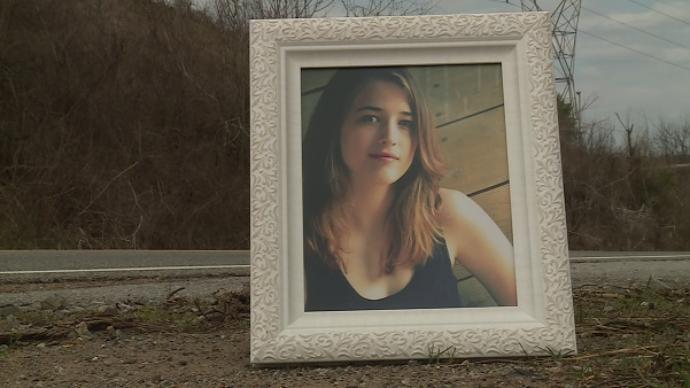A teenage girl died in a car crash — then the state billed her for the broken guardrail

Steve Eimers knew something was wrong before he opened the envelope with his daughter’s name on it.
It was from the Tennessee Department of Transportation, and it was about Hannah Eimers’s crash a few months earlier.
Because she was at fault in the November crash in her father’s Volvo, the letter said, the state wanted her to pay up: $2,600 to install a new guardrail end terminal and $231 to get the highway safety device inspected — nearly $3,000 in total.
The invoice shocked Steve so much that he dropped a page of the letter onto the floor, he told The Washington Post.
Hannah had been dead nearly four months.
“It’s obscene,” he told The Post. “They will kill you and then they will bill you. The bill was absolutely tasteless … It’s almost comical. It’s like the most obscene comedy skit you can come up with.”
Hannah was the oldest child in the Eimers family, a patchwork of biological and adopted children.
Steve said she had taught herself to play guitar and piano, and spoke several languages. Her heart was in acting and in cosplay. Costume parties around Halloween were always a big deal.
The 17-year-old had been to a costume party the night before the crash and stayed over at a friend’s house. The next morning, the pair was on Interstate 75, headed to school.
Steve said he isn’t sure exactly what happened, but the Highway Patrol told him that she drove off the road, then tried to correct before the driver’s side door slammed into the guardrail end terminal.
Hannah died instantly.
For a month, Steve said, he was in a fog. He thought of his daughter all the time, especially when he drove on the highway.
But over time, something about the circumstances of Hannah’s crash irked him. He’s an emergency medical technician and has seen his share of highway wrecks. A sudden impact on a highway can kill, but the end terminal is supposed to crumple, dissipating the force from a crash and making the collision survivable.
But Hannah was dead.
“It should have been, at worst, a minor-injury accident with property damage — probably little to no injury,” Eimers said. “The girl that was with her in the other seat had a little, tiny cut.”
So the Loudon County dad became an amateur sleuth, researching other crashes like his daughter’s. He’s convinced that the guardrail system, the Lindsay X-Lite terminal, was at fault. He accuses the Tennessee Department of Transportation of not doing more.
“They knew it was dangerous,” he said. “They left it in place. They played Russian roulette with her life.”
Mark Nagi, a spokesman for TDOT, said the Lindsay X-Lite terminal was removed from the state’s qualified-products list on Oct. 25, just days before Hannah died.
The department had concerns about how the terminals held up over time, particularly the parts that are supposed to crumple on impact. A spokesperson for Lindsay Barrier Systems didn’t respond to messages seeking comment on Sunday.
Removing the company’s barrier from the qualified-products list meant TDOT wouldn’t install new ones, but existing ones were still peppered across highways statewide.
Later in 2016, TDOT decided to remove the end terminals entirely from places where the speed limit is greater than 45. The process has started, but it could be early summer before the replacement is complete, Nagi said.
CBS affiliate WVLT reported that “there are currently 1,000 similar end pieces on Tennessee roadways.”
Eimers said he is skeptical that the state will do the right thing. He sees TDOT’s letter to his dead daughter as a sign of incompetence at the agency.
Nagi, the TDOT spokesman, said the letter was sent “due to an error in processing. A new letter has been sent to the family to apologise, to explain the error, and instruct that there is no billing.
“TDOT greatly apologises for this mistake. There is no excuse for the letter/bill that was sent, and we will take measures to make sure that this never happens again.”
Eimers said he also plans to go to the Tennessee State Capitol, 175 miles away in Nashville, to tell legislators about the dangers of the guardrail in Hannah’s crash and to advocate for safer ones.
“I was invited to a state House hearing,” he said. “I’m anticipating a meeting with the governor, but I’d like federal oversight on this. This could be an extraordinarily deadly device.
“If my daughter lived in Virginia and this happened, she’d still be alive.”
This post has been updated.
Copyright: Washington Post
Join our commenting forum
Join thought-provoking conversations, follow other Independent readers and see their replies
Comments